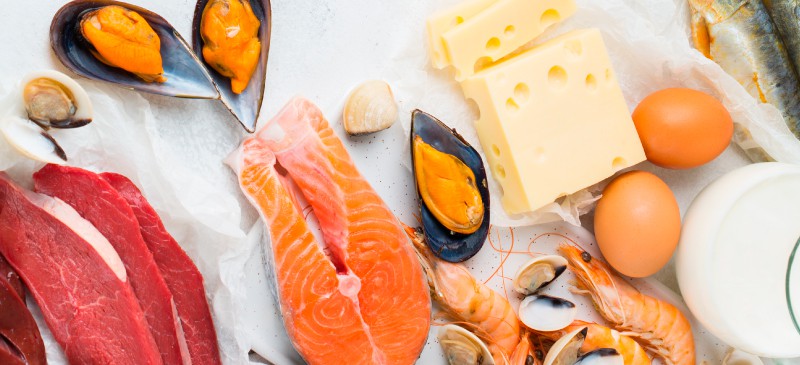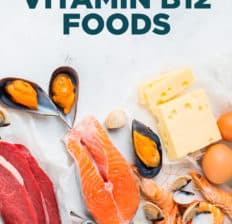This Dr. Axe content is medically reviewed or fact checked to ensure factually accurate information.
With strict editorial sourcing guidelines, we only link to academic research institutions, reputable media sites and, when research is available, medically peer-reviewed studies. Note that the numbers in parentheses (1, 2, etc.) are clickable links to these studies.
The information in our articles is NOT intended to replace a one-on-one relationship with a qualified health care professional and is not intended as medical advice.
This article is based on scientific evidence, written by experts and fact checked by our trained editorial staff. Note that the numbers in parentheses (1, 2, etc.) are clickable links to medically peer-reviewed studies.
Our team includes licensed nutritionists and dietitians, certified health education specialists, as well as certified strength and conditioning specialists, personal trainers and corrective exercise specialists. Our team aims to be not only thorough with its research, but also objective and unbiased.
The information in our articles is NOT intended to replace a one-on-one relationship with a qualified health care professional and is not intended as medical advice.
Vitamin B12 Foods: the 12 Best Sources
October 11, 2024

When it comes to vitamin B12 foods, there aren’t that many options because they primarily consist of animal meat, eggs, fish and certain dairy products. For those who are vegetarian or vegan, pregnant or nursing, or who may be at risk for a vitamin B12 deficiency, it’s often recommended that they take a vitamin B12 supplement.
Vitamin B12 is a water-soluble vitamin that plays many important roles in the body. Benefits of vitamin B12 include helping to convert carbohydrates into glucose, produce red blood cells, produce serotonin (may aid mood), may reduce mental fatigue, and keep blood and nerve cells healthy.
The current daily recommended value for vitamin B12 (based on a 2,000 daily calorie intake for adults and children 4 years of age or older) is 2.4 micrograms per day. It goes up to 2.6 mcg for pregnant women and 2.8 mcg for breastfeeding women.
If excess vitamin B12 is consumed, it gets stored in the liver and the body saves it for future use.
Vitamin B12 is absorbed in your stomach with the help of a protein called intrinsic factor. This substance binds to the vitamin B12 molecule and helps your blood and cells absorb it.
Excess vitamin B12 is stored in your liver. If you consume more than the RDI, your body saves it for future use.
Here are some of the best vitamin B12 foods to consume on a regular basis to make sure you get enough of this essential vitamin:
1. Beef liver
A 3 oz. (85 g) cooked beef liver contains 81.6 mcg of vitamin B12 (3400% DV*).
The top benefit of eating liver is its very high B12 content. All it takes is one ounce of beef liver to get well over most people’s daily requirements for B12.
Just always make sure to purchase beef liver of the highest quality. That means liver that’s organic from grass-fed and pasture-raised cows.
Consuming beef liver can help prevent pernicious anemia because not only is it high in vitamin B12, but it’s also high in iron and and folate. These are three nutrients that can aid in a natural recovery from anemia.
2. Nutritional yeast
A 2 tablespoon serving of nutritional yeast (9 g) contains 14 mcg of vitamin B12 (583% DV).
If you’re a vegetarian or vegan looking for a way to get more B12 in your diet, nutritional yeast is a great option. It’s typically fortified with B12 and other B vitamins.
Nutritional yeast is also considered a complete protein since it contains at least nine of the 18 amino acids that the human body is unable to produce.
3. Atlantic mackerel
A 4 oz. (112 g) serving of raw Atlantic mackerel contains 16.1 mcg of vitamin B12 (269% DV).
Atlantic mackerel (not king mackerel) makes the list of healthiest fish because not only is it super high in B12, but it’s also loaded with omega-3s, low in mercury and is rated a top fish pick for health as well as sustainability.
4. Fortified cereals
Although eating fortified foods like cereal products isn’t considered part of a whole food, healthy diet because they contain refined and processed grains, for people following a vegan or vegetarian diet, it’s a good way to maintain healthy B12 levels.
There are healthier breakfast cereals on the market, like those made with whole grains, no added sugars and no harmful ingredients.
A 100 gram serving of Post Bran Flakes, for example, contains 5 mcg of vitamin B12 (208% DV). Ideally, if you seek to increase your vitamin B12 intake, use a fortified cereal like this that’s low in added sugar yet high in fiber.
5. Sardines
A 3.75 oz. can (92 g) of Atlantic sardines contains 8.2 mcg of vitamin B12 (137% DV).
Sardines are very high in vitamin B12, and they’re also impressively high in something else vital to human health: omega-3 fatty acids. Research has shown that the omega-3s contained in sardines nutrition can have all kinds of major health benefits, including boosting heart health, decreasing inflammation and helping asthma.
6. Grass-fed beef
A 4 oz. grass-fed strip steak (113 g) contains 1.44 mcg of vitamin B12 (60% DV).
Grass-fed beef is not just a top choice when it comes to vitamin B12 food sources — it’s also one of the best animal sources of protein. Compared to grain-fed beef, it’s a much healthier choice.
Research indicates that grass-fed beef is higher in precursors for vitamin A, vitamin E and cancer-fighting antioxidants compared to grain-fed beef.
7. Lamb
A 3 oz. (85 g) of lamb contains 2.7 mcg of vitamin B12 (45% DV).
Lamb is not eaten as much in the U.S. as it is in many other countries, but it definitely has impressive nutrition content. It’s one of the top vitamin B12 foods, and it’s also very rich in protein, iron, selenium and zinc.
Selenium and zinc are two major immune-boosting nutrients.
8. Wild-caught salmon
A 3 oz. serving (85 g) of cooked wild-caught salmon contains 2.6 mcg of vitamin B12 (43% DV).
Wild-caught salmon is one of the healthiest and most nutritious protein sources. Of course, you need to choose wild and not farmed to make the most of this fish when it comes to your health.
Wild-caught salmon is packed with vitamin B12 as well as vitamin D, which is another common vitamin deficiency these days.
Research has demonstrated that 800 to 5,000 international units of vitamin D per day can improve musculoskeletal health, naturally slow aging of the skeletal structure, and reduce the rate of fractures and falls in older adults who are over 65.
9. Eggs
A 2 large egg serving contains 0.89 mcg of vitamin B12 (37% DV).
Eggs are a great non-meat source of vitamin B12. They also contain choline, which our livers depend on to function properly.
Research has found a correlation between low choline levels and liver dysfunction and possibly a higher risk of cancer formation.
10. Plant-based milk
Nondairy, plant-based milk — such as almond, oat and soy milk — can make for a quality vegan replacement for dairy milk. It’s usually fortified and will include vitamin B12.
For example, one cup (244 g) of unsweetened almond milk contains 0.83 mcg (35% DV) of vitamin B12.
11. Cottage cheese
A 4 oz. (113 g) of 2 percent milk-fat cottage cheese contains 0.53 mcg of vitamin B12 (22% DV).
Cottage cheese is high in vitamin B12 as well as protein and calcium. It’s also the star ingredient of an alternative approach to cancer known as the Budwig Protocol or the Budwig Diet.
12. Feta cheese
A 1 oz. serving of feta cheese (28.4 g) contains 0.5 mcg of vitamin B12 (21% DV).
Feta cheese is a great source of vitamin B12 and many other nutrients, such as riboflavin (vitamin B2) and calcium. Traditionally, feta cheese is made from sheep’s milk or a mix of sheep’s and goat’s milk.
If you can find feta cheese made from raw sheep/goat milk, the nutrition and health benefits are even better. Its high riboflavin content is excellent for headache sufferers, since studies have shown that riboflavin can significantly reduce the frequency of headaches, including migraines.
*Daily Value: Percentages are based on a diet of 2,000 calories a day.
Conclusion
- The best way to get enough vitamin B12 is through a healthy diet whenever possible. This isn’t such a hard task once you know what foods contain this essential vitamin.
- The top foods high in vitamin B12 include foods like beef liver, sardines, Atlantic mackerel, lamb, wild-caught salmon and nutritional yeast.
- As you can see, there are a lot of tasty options when it comes to foods high in B12. For people who are not able to get enough vitamin B12 in their diets, there are supplements available as well.





